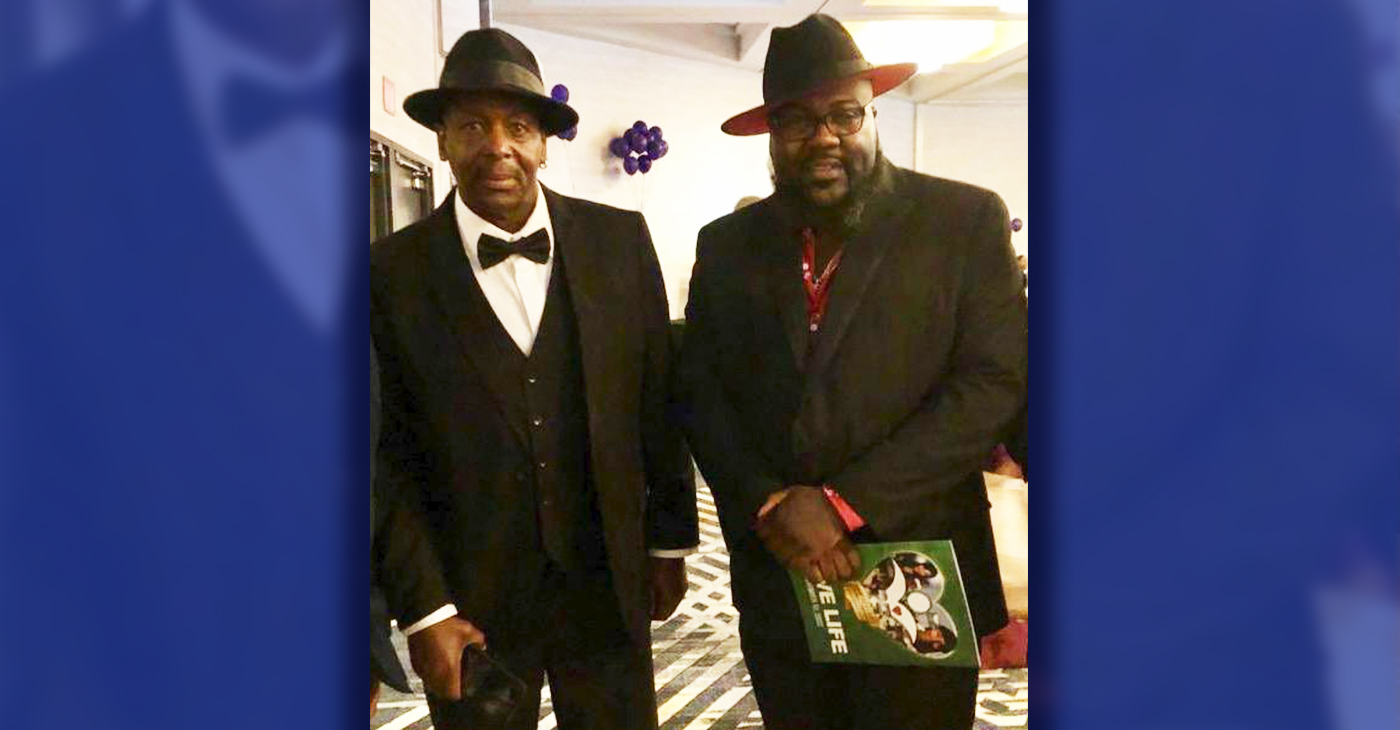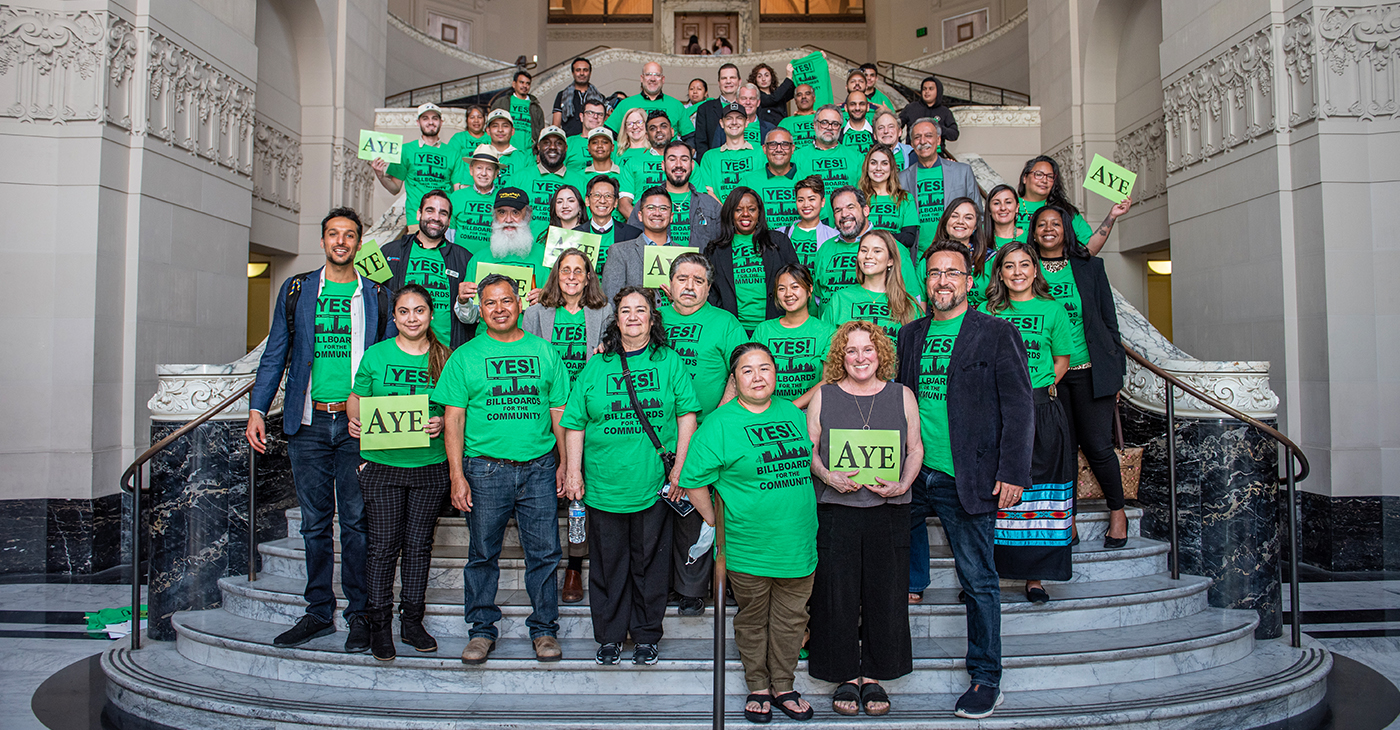Activism
Giving Back, While Giving Thanks
Formerly Incarcerated Giving Back (FIGB) wants everyone to truly embrace the concept of giving back year-round to those in need, which could help to alleviate homelessness, joblessness, poverty, hunger, healthcare and many of the ills that have befallen our community in every conceivable way.

Mistah FAB Collaborates With FIGB, AASEG and Post to Help Needy
By Richard Johnson
Every year the season of giving is highlighted by the acts of those who desire to give to those who are less fortunate.
We should salute and embrace those givers!
One such person is Stanley Cox, better known as Mistah FAB, who has been giving to the community for more than 18 years. He has demonstrated a remarkable spirit of thanks, gratitude, and humility in all of his various forms of giving back to his community.
This year, the Formerly Incarcerated Giving Back (FIGB) organization, in partnership with the African American Sports Entertainment Group (AASEG) and the Post News Group, will volunteer in collaboration with Mistah FAB by distributing a variety of items — from turkeys and other food items to coats, gloves, blankets, boots, umbrellas, hats and more to the needy.
The upcoming event is Tuesday, Nov. 22, 2022 from 1:00-4:00 p.m. at 4506 Market Street, Oakland, CA. All items are Free! As stated by Mr. Fab, a hot meal will be prepared on the spot for homeless individuals. We look forward to your attendance.
FIGB considers this opportunity to serve, especially needy families with children, both a pleasure and an honor.
The gifts we give are confirmation of what’s in our hearts.
FIGB wants everyone to truly embrace the concept of giving back year-round to those in need, which could help to alleviate homelessness, joblessness, poverty, hunger, healthcare and many of the ills that have befallen our community in every conceivable way.
Giving back is our way of saying that we are truly our brother’s keepers. When each one of us reaches others through selfless actions we will set a positive example for others to emulate.
At times, as a society, we fail to realize that life always has its ups and down, yet through the graciousness of God we overcome a lot.
In recent years, however, it appears that society has allowed the failures to overtake the successes, causing too many to lose hope and faith and replace it with selfishness, greed and disregard for their fellow human beings.
Look around you and see what I see; the pain, hurt and despair is what we have allowed ourselves to become and to exist in. People of wealth and means can be at the forefront of giving if they truly desired.
It should never be a question of “should I,” or “shouldn’t I?” It should always be “how can I help?” It should always be how can I help change suffering and poverty into stability, joy, and appreciation for life?
Whether we accept it or not, we are an extension of one another.
We need more people like Mistah FAB who truly understands what it takes for us to believe, trust and have faith that through a sense of giving we can change the trajectory of defeat.
One does not have to be wealthy to give. The only criteria are that you give wherever you can to help others. Everything will fall in place and take shape for the betterment of all.
Activism
Oakland Post: Week of July 24 – 30, 2024
The printed Weekly Edition of the Oakland Post: Week of July 24 – 30, 2024

To enlarge your view of this issue, use the slider, magnifying glass icon or full page icon in the lower right corner of the browser window. ![]()
Activism
Oakland Post: Week of July 17 -23, 2024
The printed Weekly Edition of the Oakland Post: Week of July 17 -23, 2024

To enlarge your view of this issue, use the slider, magnifying glass icon or full page icon in the lower right corner of the browser window. ![]()
Activism
Community Celebrates Historic Oakland Billboard Agreements
We, the Oakland Billboard Economic Development Coalition, which includes Oakland’s six leading community health clinics, all ethnic chambers of commerce, and top community-based economic development organizations – celebrate the historic billboard agreements approved last year by the Oakland City Council. We have fought for this opportunity against the billboard monopoly, against Clear Channel, for five years. The agreements approved by Council set the bar for community benefits – nearly $70 Million over their lifetime, more than 23 times the total paid by all previous Clear Channel relocation agreements in Oakland combined.

Grand Jury Report Incorrect – Council & Community Benefit
We, the Oakland Billboard Economic Development Coalition, which includes Oakland’s six leading community health clinics, all ethnic chambers of commerce, and top community-based economic development organizations – celebrate the historic billboard agreements approved last year by the Oakland City Council. We have fought for this opportunity against the billboard monopoly, against Clear Channel, for five years. The agreements approved by Council set the bar for community benefits – nearly $70 Million over their lifetime, more than 23 times the total paid by all previous Clear Channel relocation agreements in Oakland combined.
Unfortunately, a recent flawed Grand Jury report got it wrong, so we feel compelled to correct the record:
- Regarding the claim that the decision was made hastily, the report itself belies that claim. The process was five years in the making, with two and a half years from the first City Council hearing to the final vote. Along the way, as the report describes, there were multiple Planning Commission hearings, public stakeholder outreach meetings, a Council Committee meeting, and then a vote by the full Council. Not only was this not hasty, it had far more scrutiny than any of the previous relocation agreements approved by the City with Clear Channel, all of which provide 1/23 of the benefits of the Becker/OFI agreements approved by the Council.
- More importantly, the agreements will actually bring millions to the City and community, nearly $70M to be exact, 23 times the previous Clear Channel relocation agreements combined. They certainly will not cost the city money, especially since nothing would have been on the table at all if our Coalition had not been fighting for it. Right before the decisive City Council Committee hearing, in the final weeks before the full Council vote, there was a hastily submitted last-minute “proposal” by Clear Channel that was debunked as based on non-legal and non-economically viable sites, and relying entirely on the endorsement of a consultant that boasts Clear Channel as their biggest client and whose decisions map to Clear Channel’s monopolistic interests all over the country. Some City staff believed these unrealistic numbers based on false premises, and, since they only interviewed City staff, the Grand Jury report reiterated this misinformation, but it was just part of Clear Channel’s tried and true monopolistic practices of seeking to derail agreements that actually set the new standard for billboard community benefits. Furthermore, our proposals are not mutually exclusive – if Clear Channel’s proposal was real, why had they not brought it forward previously? Why have they not brought it forward since? Because it was not a real proposal – it was nothing but smoke and mirrors, as the Clear Channel’s former Vice President stated publicly at Council.
Speaking on behalf of the community health clinics that are the primary beneficiaries of the billboard funding, La Clinica de la Raza CEO Jane Garcia, states: “In this case, the City Council did the right thing – listening to the community that fought for five years to create this opportunity that is offering the City and community more than twenty times what previous billboard relocation agreements have offered.”
Oakland Billboard Economic Development Coalition
| Native American Health Center | La Clínica de la Raza | West Oakland Health Center |
| Asian Health Services | Oakland LGBTQ Center | Roots Community Health Center |
| The Unity Council | Black Cultural Zone | Visit Oakland |
| Oakland African American Chamber of Commerce | Oakland Chinatown Chamber of Commerce | Oakland Vietnamese Chamber of Commerce |
| Oakland Latino Chamber of Commerce | Building Trades of Alameda County | (partial list) |
-

 Arts and Culture3 weeks ago
Arts and Culture3 weeks agoRooted in Tradition: The Intricate History of Black Hair Braiding
-

 Bay Area4 weeks ago
Bay Area4 weeks ago“I Will Not Be Bullied,” Says Oakland Mayor Sheng Thao
-

 Bay Area2 weeks ago
Bay Area2 weeks agoPG&E Increases Rates While Bay Area Households Are Struggling to Stay Afloat
-

 Business3 weeks ago
Business3 weeks agoGov Newsom: Raising Fast Food Minimum Wage to $20 Pays Off as Jobs Multiply in Industry
-

 Activism4 weeks ago
Activism4 weeks agoOpponents of Mayor Sheng Thao Are Calling on Her to Resign Following FBI Raid
-

 Community1 week ago
Community1 week agoHundreds Come to Jehovah’s Witnesses’ Assembly Hall for Three-Day Program of ‘Good News’ in Fremont
-

 Bay Area2 weeks ago
Bay Area2 weeks agoJuneteenth Mass Shooting Suspect Charge with Multiple Counts of Felony Assault by Alameda County DA Pamela Price
-

 Activism4 weeks ago
Activism4 weeks agoOakland Coliseum Sale to AASEG: A Model for Community Development and Inclusion



















































